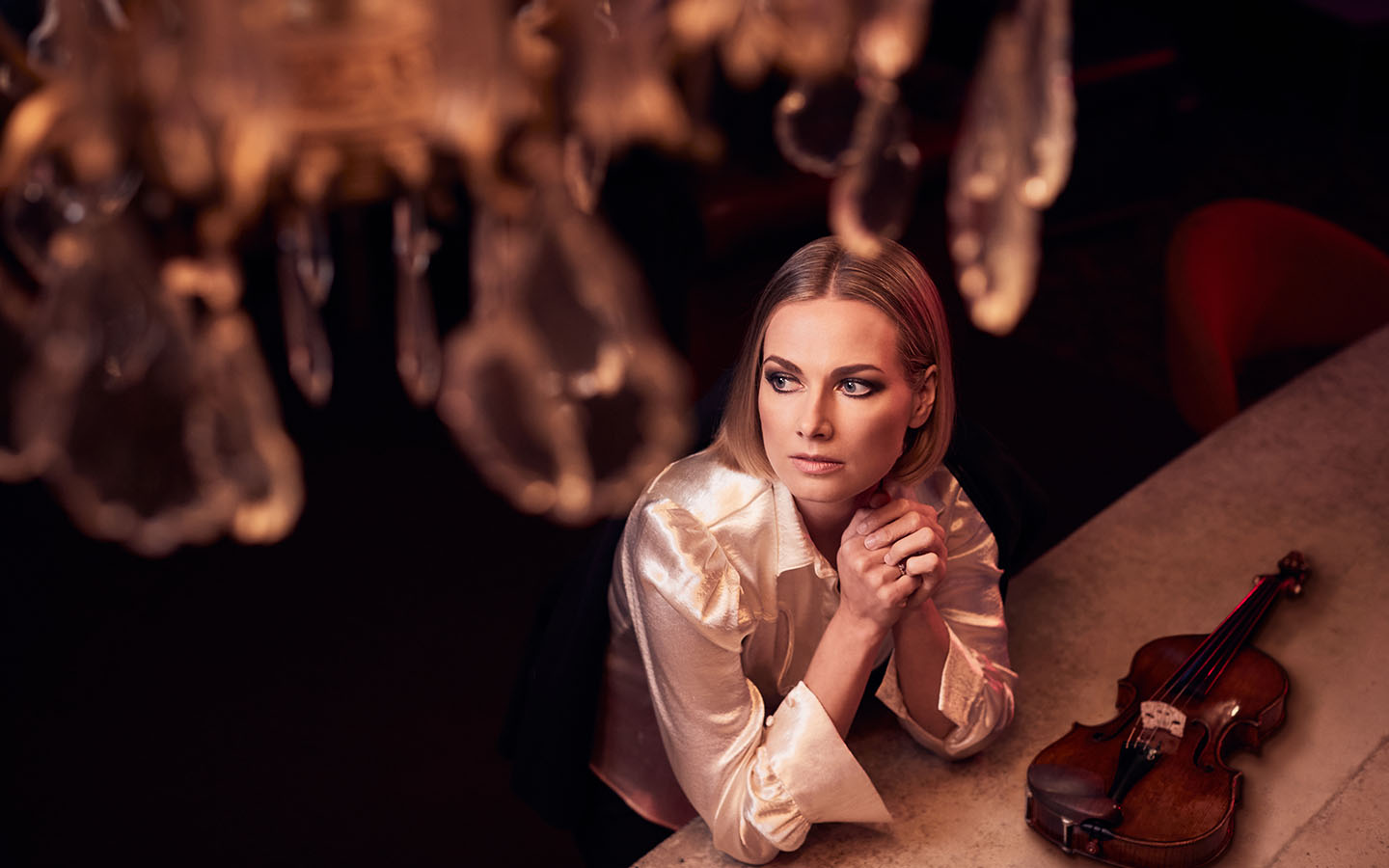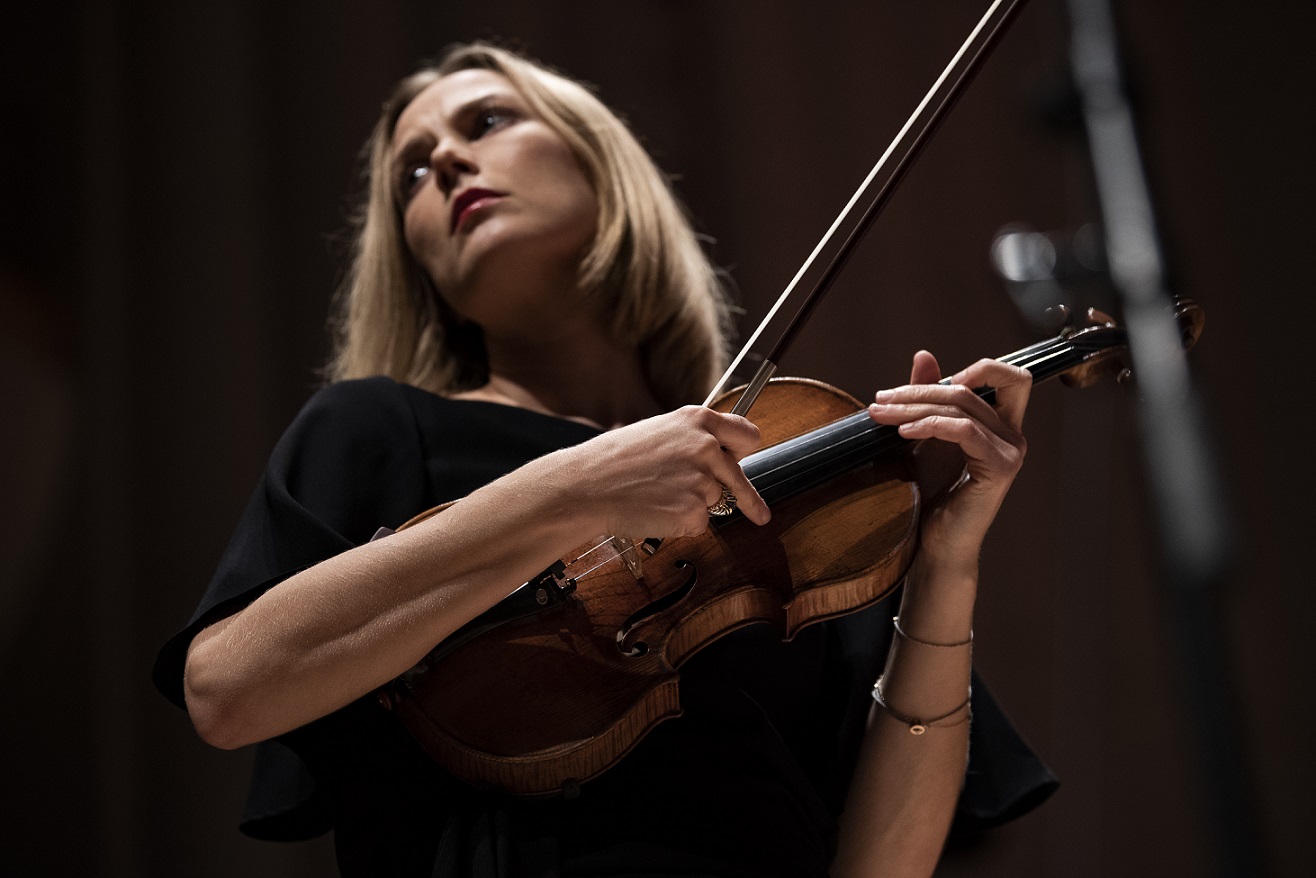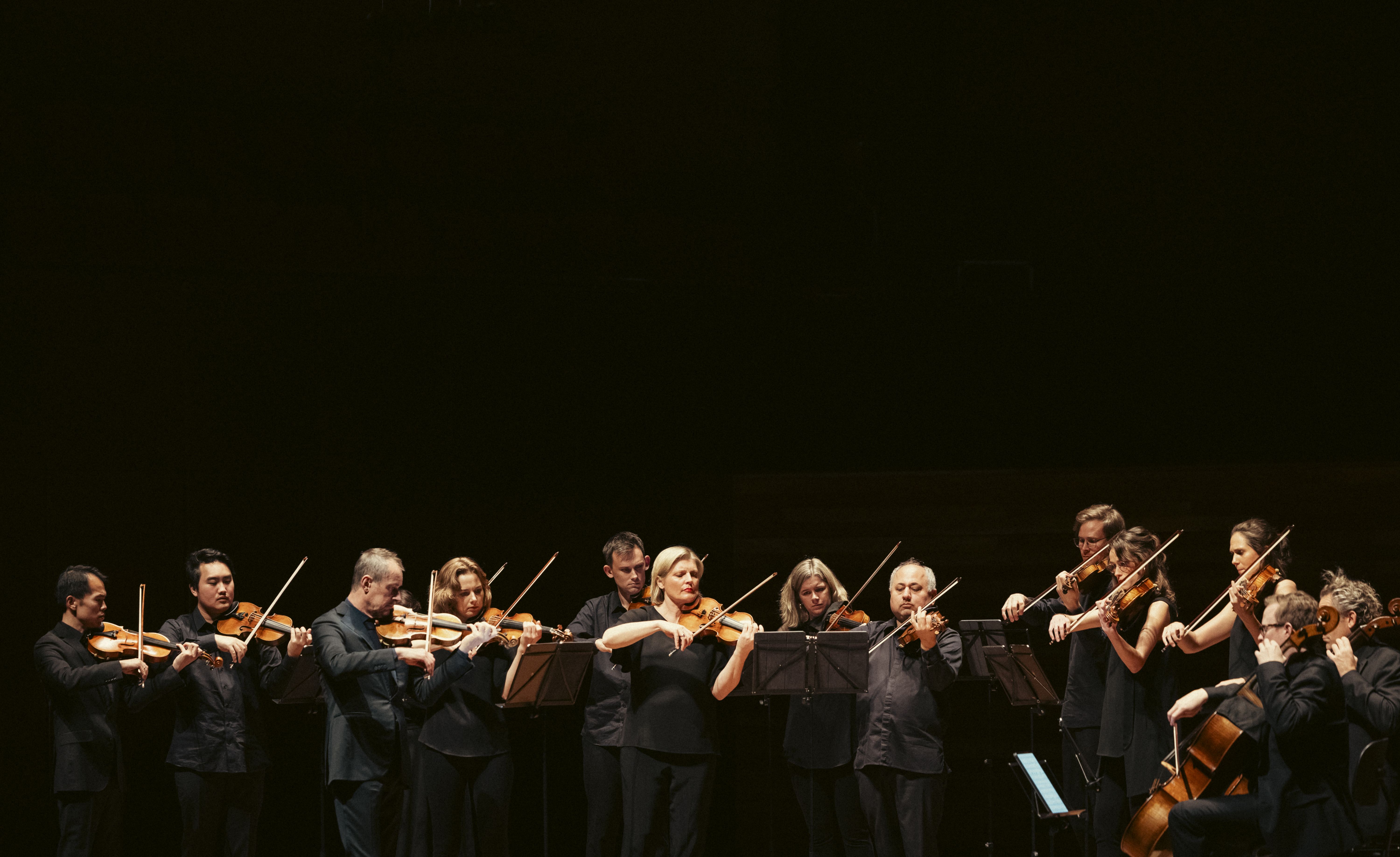
By Maria Takolander
Perhaps it’s no surprise that Satu and I, as Finns – albeit of the kind born outside Finland – spend much of our conversation talking about silence. If you haven’t heard the jokes about the legendary reticence of Finns, here’s a classic: how do you tell the difference between a Finnish extrovert and a Finnish introvert? The extrovert looks at your shoes when you’re talking.
Finns have an underestimated sense of humour. Satu laughs easily and openly but we move beyond jokes to think more deeply about the stereotype of the reserved Finn, suspecting that it might provide insights into the relationship thematised by the ACO’s Silence & Rapture program. Satu tells me a beautiful story.
She remembers being in a wooden church at Christmas in Finland, snow falling soundlessly in the deep winter dark outside. A Christmas service in Finland is one characterised, as Satu describes it, by harras or devoutness, “rather than the celebratory aspect that one might get in Australia”. It is a time to remember a history of national hardship – Satu’s father’s family was one of many, including my own, forced to flee Karelia in eastern Finland after the Soviets invaded during World War II – as well as a time to remember the dead. The church is quiet, and a hymn follows: “the choir sings and everyone sings and there’s this really deep gratitude in the air, a little bit of light in a big darkness.”
Silence may be golden in Finland – hiljaisuus on kultaa, as my mother often said when I was growing up – but music is equally precious. Certainly, Satu credits her musical education in Finland, paid for by the state, as fundamental to her career. In Finland there is no two-tier system of education separating elite private schools from public ones: the best school is always said to be the one down the road.
Silence may be golden in Finland – hiljaisuus on kultaa, as my mother often said when I was growing up – but music is equally precious.
Finland may be a small nation but its ethos, as Satu puts it, is to “compete in quality rather than quantity” by investing in “people’s brains”. It is taken for granted that music is an important part of a well-rounded curriculum. Satu, who was born in Japan but moved back to Finland with her family as a child, says: “I don’t think I would have been a violinist if we hadn’t returned to Finland when I was 10 years old.”
Satu has lived in Australia for 20 years – as long as she’s been a member of the ACO – but the ways in which Finns relate to nature remain an important touchstone for her too.
Finland has some 188,000 lakes and is Europe’s most forested country, with about 75 per cent of its land covered in woodlands of spruce, pine and birch. For Finns, as Satu describes it, nature is part of “your spirituality” or “inner ecology”, inasmuch as it is part of “your awareness of your own smallness and insignificance”. That relationship is maintained in grounded practices that might be seen as a secular form of church-going. Even Finns in urban centres forage seasonally for berries and mushrooms, with their right to roam and gather wild resources enshrined in the Jokaisenoikeudet or The Everyman’s Rights law.

I wonder if Satu’s relationship to Finland might carry over to a special affinity with the music of the Estonian composer Arvo Pärt, particularly given the close relationship of Finland and Estonia: geographically (being just across the Baltic Sea); historically (with both countries having wrestled with The Bear Next Door, as Russia is known); and linguistically (with Finnish and Estonian being like carnival mirror images of one another, belonging to the same Uralic language group). Satu, however, enthuses about the genius of JS Bach as much as Pärt, and as a musician prefers to think of herself as a world citizen: “Music is one thing where you can leave your nationality behind.”
As listeners we know that music has that power to cross space and time, but thinking of the magic of listening to celebrated musicians I can’t help but wonder if there’s a parallel to be drawn between the virtuoso musician and the actor who gets into character by channelling relevant personal experiences.
That’s why I ask if Satu’s religious upbringing – her parents were Lutheran missionaries – informs her interpretation of the deeply Christian music of Bach and Pärt. “On the one hand, there’s just the score,” she responds, “though it’s impossible not to impose yourself on it, because there’s no sound unless you intervene.” She stresses that the musician’s process is more unconscious and amorphous than the method actor’s: “I guess it’s this big lump of everything inside you, and somehow you transfer it to your physical self in the way you play.”
Satu, however, enthuses about the genius of JS Bach as much as Pärt, and as a musician prefers to think of herself as a world citizen: “Music is one thing where you can leave your nationality behind.”
Physicality is, of course, central to musicianship. As Satu jokes, the ACO musicians could be called “finger athletes”. That relationship between music and physicality comes into sharper focus through the ACO’s collaboration with the Sydney Dance Company as part of the Silence & Rapture program. As a member of an orchestra, it’s no surprise that Satu thrives on collaboration, and collaborating in interdisciplinary adventures is a special thrill, she says, since it provides an opportunity to “see things with fresh eyes”.
However, it’s the musician’s collaboration with the audience that she identifies as truly special. After much philosophising about silence, I ask Satu if, as a musician – despite being the one who’s pulling the strings, so to speak – she’s able to experience something of the rapture that audiences feel. “Yes, I can feel that very profoundly,” she answers. “On the one hand you’re concentrating very hard but you’re also enjoying the moment. Here’s a human being who has learned to play this strange instrument and who is playing music written perhaps hundreds of years ago, and the audience is listening, and we are all in that moment together making it happen.”
It’s a phenomenon that Satu suggests “isn’t spoken about enough”, perhaps because it’s so difficult to describe, perhaps because it exists only in that collaborative and unique moment of music-making and music-listening. As Satu puts it, “the music says things when you don’t have the words”. And we return again to that paradoxical but profound relationship between music and silence.
Satu next performs in Silence & Rapture, which tours to Sydney, Melbourne, Adelaide, Perth, Canberra and Brisbane. Click here to buy tickets – from $59, or $35 for under 35s and $25 for students.
By Maria Takolander
Maria Takolander is the author of the poetry collection Trigger Warning, which won a Victorian Premier’s Literary Award.
